Teeth (Horses & Ponies)

This is usually the domain of the equine dentist. Vets used not to do much more than a basic rasping. In latter years, however, a few vets have taken a much keener interest in this important area of horse care.
We always examine the teeth and chewing action of horse and pony patients, as part of the holistic approach. Much can be ascertained from this examination.
In normal health, the upper and lower teeth of equines are constantly growing and wearing on their opposite numbers. Whether through diet or not, domestic horses appear to require regular dental attention, to maintain correct function of teeth and chewing (mastication). Proper chewing is vital to proper digestion, in a fibre-converting herbivore. Tooth occlusion and jaw action are also of importance to the musculo-skeletal system in general. A key part of the chiropractic work we do at AVMC is related to jaw and facial alignment. Mouth comfort is also vitally important to horse welfare and to humane riding control.
Teeth that have not been regularly checked may develop sharp edges, which can cause ulceration and pain inside the cheeks and on the tongue. If teeth do not correctly occlude, the chewing action can be faulty, leading to poor digestion, a risk of colic, ‘quidding' (dropping out of balls of hay or other food) and potentially serious jaw and skull alignment issues. When teeth are rasped, the chewing action and dental occlusion should be thoroughly checked afterwards, to ensure that the work has achieved its objective.
Should a tooth root become infected, through fracture or other cause), it can affect the floor of the maxillary sinus and cause foul nasal discharge. An abscess over the tooth root will usually show on X-Ray. It may be necessary to extract the tooth, to achieve resolution, although experience has shown us that homeopathic treatment (homeopathy) can usually stimulate resolution of such cases, usually averting the need for such drastic and dangerous surgery. Some early cases may just have inflammation, involving the sinus floor. These lesions may not show on X-Ray.
The AVMC does not recommend removal of a tooth via the maxillary sinus, since this can cause serious long-term disruption of the aerodynamics of the sinus and can lead to chronic facial infection. We have had to treat many such cases, after they have gone wrong (example case).
If a tooth has to be extracted, the teeth in the lower jaw must be checked more frequently, as normal wear patterns will have been disrupted and the opposing teeth can develop ‘steps', disturbing correct jaw function.
The AVMC performs only emergency dental work, in really needy cases, when the attention of an equine dentist cannot be obtained rapidly enough.
Ageing of mature horses by their teeth is an approximate science, that serves well to define the age within limits. Ageing of young horses (up to 4 years old), while the dentition is changing, is much more accurate.
| Herbal | Acupuncture | Homeopathy | Chiropractic | Nutrition | Natural | Holistic |
